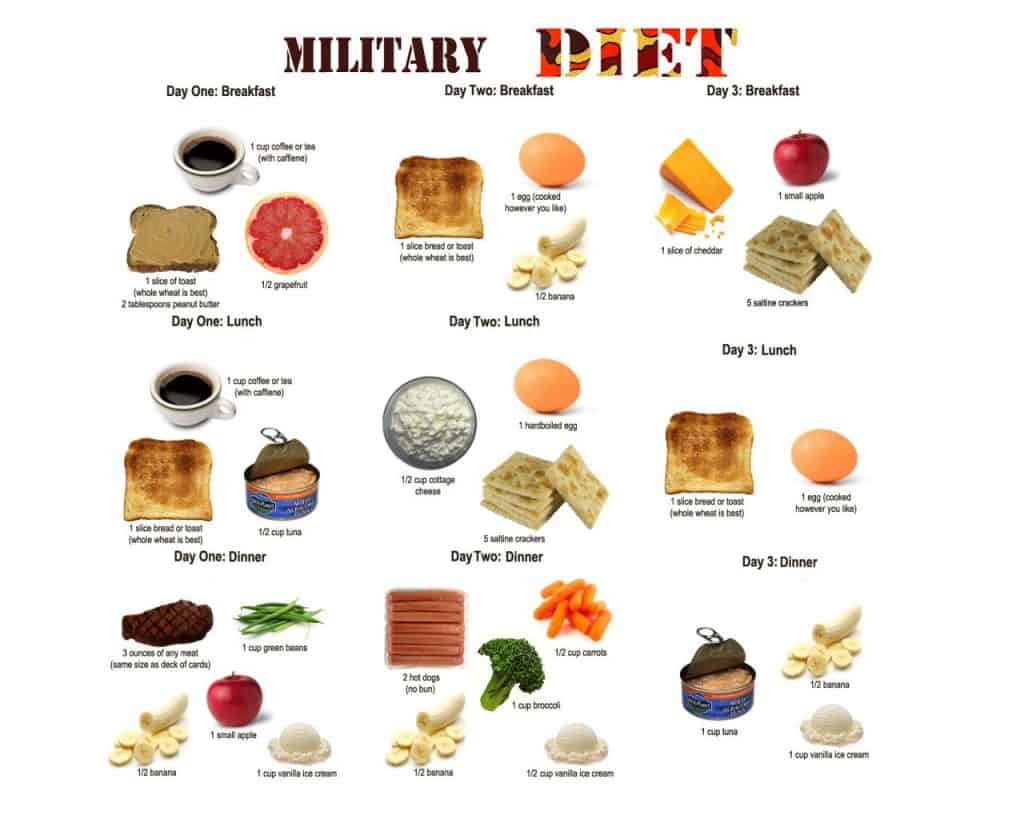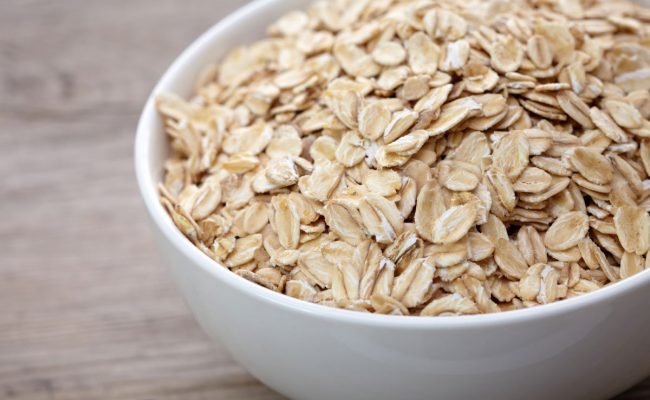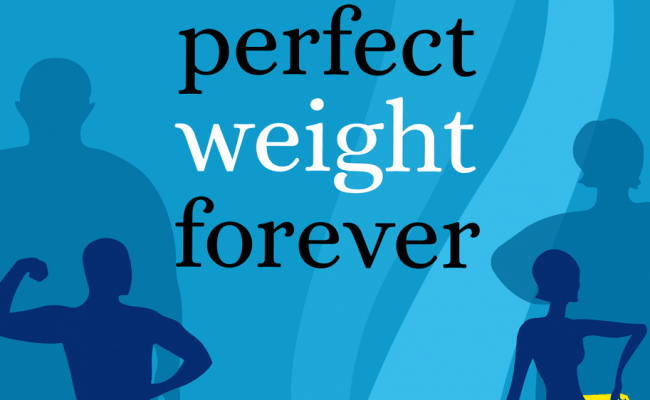
The Military Diet, or three day diet, claims you can lose up to 10 pounds in a week. Is this claim true or is it a fad diet? Unfortunately, there is no research to support the claims of weight loss from the Military Diet. It is not even officially related with any branch of the military.
So why is the Military Diet popular for weight loss?
The Military Diet is easy to follow and is relatively straight forward. It also incorporates foods that are cheap and easy to get.
Following this plan is considered a low calorie diet, so weight loss can be a result.
However, the longevity of weight loss following this plan is very low. It is also not recommended to follow this diet long term because it is limited in food diversity and lacking in certain nutrients.
Health experts agree the Military Diet is not a recommended way for sustained weight loss.
If you follow the Military Diet, you may lose weight but chances for regaining the weight can be high.
How does the Military diet work?
The Military Diet (1) is an eating plan that is similar to intermittent fasting. Three days a week you follow a very low calorie diet plan. An example days worth of food includes:
- Breakfast: 1 cup of coffee or tea, 1 slice of whole grain toast with 2 tablespoons of peanut butter and ½ of a grapefruit
- Lunch: 1 cup of coffee or tea, 1 slice of toast and half cup of canned tuna
- Dinner: just three ounces of meat, one cup of green beans, half of a banana, one small apple and one cup of vanilla ice cream.
The other two days’ meals are similar to this set up. Dinner on day two even includes 2 hot dogs without the bun, which has most health experts question why this food choice would be advised for this diet plan.
The very low calorie intake for three days is suggested to jump start weight loss. The rest of the 4 days of the week is recommended to still follow a low calorie intake of around 1,500 calories per day.
Food choices these “off” days are more liberal, but the military diet has the suggested menu options listed.
Following this structure of eating the low calorie meals provided by the Military Diet three days a week is suggested for weight loss of up to 10 pounds in a week.
Could you lose 10 pounds with the Military Diet?
Sure, you could lose 10 pounds following the Military Diet. The problem is individual weight loss by following this specific program has a very high variability.
Not everyone will lose 10 pounds in a week. There are no research studies to suggest following the specified meals in the Military Diet has any advantage for weight loss.
Some studies suggest intermittent fasting could be a viable long term solution for weight regulation, but not following the Military Diet specifically.
A 2011 study (2) split people into either a traditional lower calorie diet or an intermittent fasting diet for 6 months.
Researchers found at the end of 6 months, there was no difference between groups for weight loss. A 2015 review (3) also concluded intermittent fasting could be a viable option for weight loss and maintenance.
Intermittent fasting can have several options including: every other day fasting, eating very low calorie intake 2 days a week or eating at certain times of the day.
Is there safety concern with following the Military Diet?
One of the potential draw backs with the Military Diet is the food choices on the three days you are following the low calorie intake.
Some of the foods recommended are low in nutritional value. As WebMD (4) explains, not all the grains they recommend are whole grain, and they suggest eating processed red meat choices for some protein options.
If you exercise on days you are eating low calorie intake, you may feel sluggish and more tired than normal.
The food choices on these three days are not meant to be a long term diet solution, as the three day diet recommendation is low in vegetable and other nutrient dense foods.
Following this diet can be challenging; you will probably feel hungry on these three “dieting” days. Other intermittent diets have the same challenges.
Conclusion: Does the Military Diet really work?
There are many ways you can lose weight. Whatever the method, you will be in one way or another altering your energy intake and/or increasing your energy expenditure.
The Military Diet lays out an easy meal plan to follow for three days. The next four days are still recommended for a lowered calorie intake but not as drastic.
The result claims could be up to 20 pounds of weight loss in a week. However, these weight loss results can vary drastically, and there is no research to suggest the specific food pattern of the Military Diet has any advantage over other diets.
In fact, the suggested food choices from the Military Diet are questioned by many health professionals.
Some studies and reviews suggest intermittent fasting eating pattern could be a viable option for weight loss and maintenance.
The Military Diet is a form of intermittent fasting, but there are other ways to incorporate intermittent fasting.
Keep in mind there is not a one fits all method for healthy, sustained weight loss. Following the Military Diet long term can be challenging and limits variety in your food choices.
The risk for regaining weight from following the Military Diet can be high. If you have specific questions if the Military Diet would be












